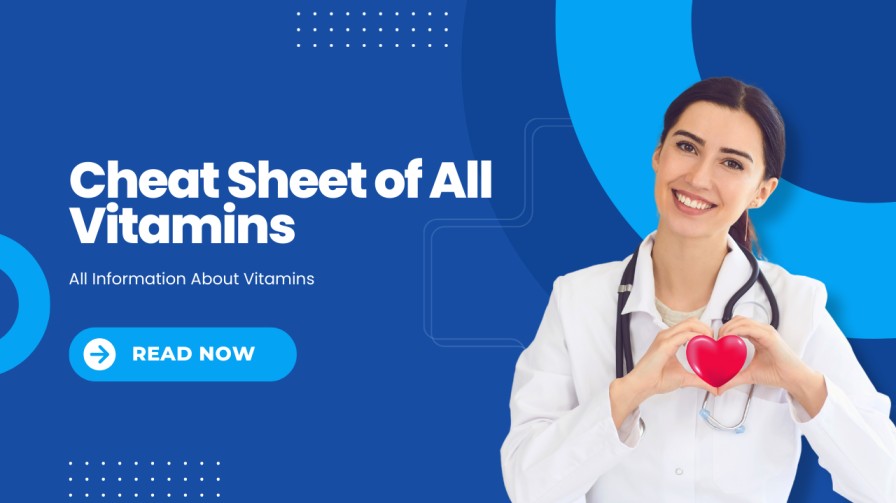Vitamins are essential nutrients that our bodies need to function properly. They help with everything from energy production to immune function. While our bodies can’t produce vitamins on their own, we can get them through the foods we eat and sometimes through supplements.
What are Vitamins?
Vitamins are organic compounds that our bodies need in small amounts. They are essential for various bodily functions, including:
- Energy production: Vitamins help convert food into energy.
- Cell growth and repair: Vitamins are necessary for building and repairing cells.
- Immune function: Vitamins help protect our bodies from infections.
- Bone health: Vitamins are important for strong bones and teeth.
- Vision: Vitamins are essential for good vision.
Types of Vitamins
Vitamins are classified into two categories: fat-soluble and water-soluble.
Fat-Soluble Vitamins
Fat-soluble vitamins are stored in the liver and fatty tissues. They include:
- Vitamin A
- Vitamin D
- Vitamin E
- Vitamin K
These vitamins are not easily excreted from the body, so it’s important not to take too much.
Water-Soluble Vitamins
Water-soluble vitamins are not stored in the body. Any excess is excreted through urine. They include:
- Vitamin B1 (thiamine)
- Vitamin B2 (riboflavin)
- Vitamin B3 (niacin)
- Vitamin B6
- Vitamin B12
- Folate
- Biotin
- Vitamin C
It’s important to consume these vitamins regularly, as our bodies don’t store them.
Importance of Vitamins
Vitamins are essential for overall health and well-being. They play a crucial role in various bodily functions.
Benefits of Vitamins
Vitamins offer numerous benefits, including:
Physical Health Benefits
- Stronger immune system: Vitamins help protect your body from infections.
- Improved energy levels: Vitamins help convert food into energy.
- Healthy skin and hair: Vitamins are essential for healthy skin and hair.
- Stronger bones and teeth: Vitamins are important for bone and tooth health.
- Better vision: Vitamins are necessary for good vision.
Mental Health Benefits
- Reduced stress: Vitamins can help reduce stress and anxiety.
- Improved mood: Vitamins are linked to better mood and cognitive function.
- Better sleep: Vitamins can help improve sleep quality.
Vitamin Deficiency
A vitamin deficiency occurs when your body doesn’t get enough of a particular vitamin. This can lead to various health problems.
Symptoms of Vitamin Deficiency
Symptoms of vitamin deficiency can vary depending on the vitamin. However, some common symptoms include:
Fatigue
Feeling tired and fatigued can be a sign of vitamin deficiency.
Hair Loss
Hair loss can be a symptom of vitamin deficiency, especially iron or biotin deficiency.
Weak Immune System
A weak immune system can make you more susceptible to infections and illnesses.
Sources of Vitamins
You can get vitamins from various sources, including food and supplements.
Food Sources
A balanced diet is the best way to get the vitamins you need. Here are some excellent food sources of vitamins:
Fruits and Vegetables
Fruits and vegetables are packed with vitamins and minerals.
Whole Grains
Whole grains are a good source of B vitamins.
Dairy Products
Dairy products are rich in calcium and vitamin D.
Meat and Poultry
Meat and poultry are good sources of B vitamins and iron.
Supplements
If you’re unable to get enough vitamins from your diet, you may need to take supplements. However, it’s essential to consult a doctor before starting any new supplements.
How to Get Enough Vitamins
Here are some tips for getting enough vitamins:
Dietary Tips
Eat a Balanced Diet
A balanced diet includes a variety of fruits, vegetables, whole grains, lean protein, and dairy products.
Choose Whole Foods
Whole foods are generally a better source of nutrients than processed foods.
Limit Processed Foods
Processed foods are often high in unhealthy fats, sugars, and sodium.
Supplement Tips
Consult a Doctor
Talk to your doctor before taking any supplements.
Quality Supplements
Choose high-quality supplements from reputable brands.
Conclusion
Vitamins are essential nutrients that our bodies need to function properly. By eating a balanced diet and taking supplements as needed, you can ensure that you’re getting enough vitamins to support your overall health and well-being.
FAQ
Q1: What is the difference between vitamins and minerals?
Vitamins are organic compounds, while minerals are inorganic elements. Both are essential nutrients that our bodies need.
Q2: Can I get too much of a vitamin?
Yes, it’s possible to get too much of a vitamin, especially fat-soluble vitamins. Taking too much of a vitamin can lead to toxicity.
Q3: Are vitamin supplements necessary?
Most people can get enough vitamins from their diet. However, if you have a deficiency or are unable to meet your nutritional needs through food, supplements may be necessary.
Q4: What are the best foods for vitamin C?
Citrus fruits, berries, tomatoes, and peppers are excellent sources of vitamin C.
Q5: How can I tell if I am deficient in a vitamin?
If you’re experiencing symptoms such as fatigue, hair loss, or a weak immune system, you may be deficient in a vitamin. It’s best to consult a doctor for a proper diagnosis.

